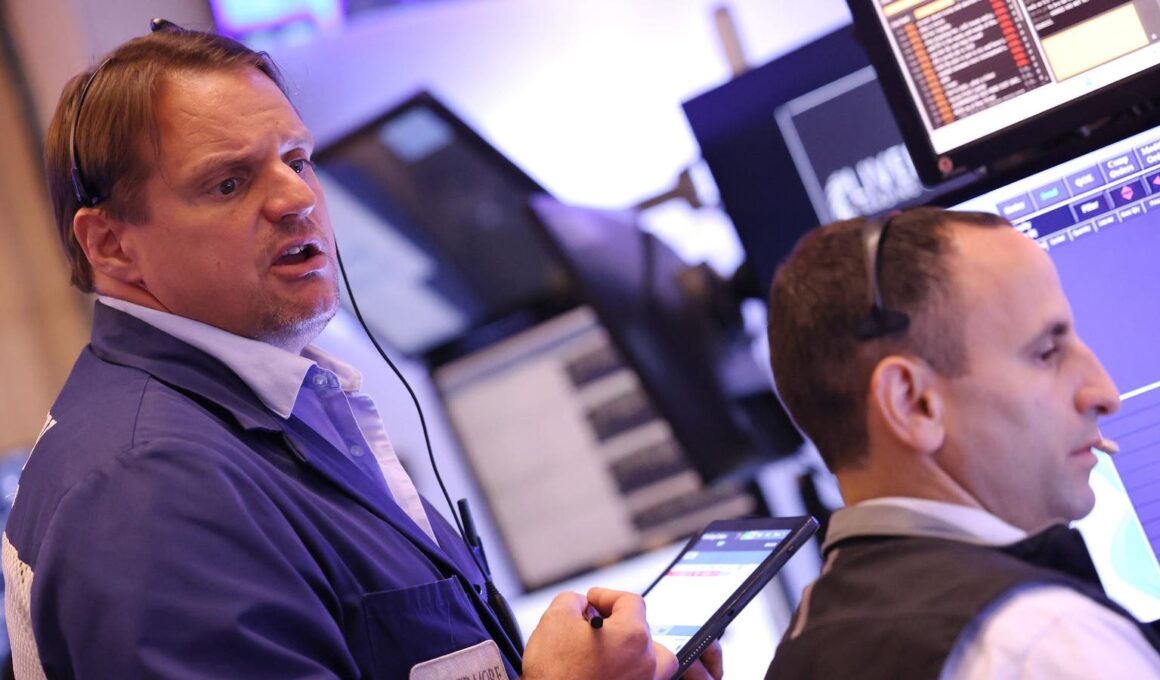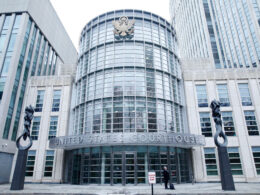Topline
Stocks whipsawed Wednesday as U.S. indexes turned negative in the afternoon after registering major gains earlier, as choppy trading accompanies tension among investors about the direction of the U.S. economy.
Wednesday brought choppy waters for investors.
Key Facts
After ending the morning up about 1%, the U.S. benchmark S&P 500 closed down 0.8% for the day, just 0.3% higher than its Monday three-month low.
The Dow Jones Industrial Average and tech-heavy Nasdaq also turned morning gains into daily losses amid the afternoon selloff, as the Dow fell 0.6%, or about 230 points, and the Nasdaq slipped more than 1%.
Still, there were signs of increased investor risk appetite: Long-dated bond yields climbed again, as yields for 10-year U.S. Treasury note rose to almost 4%.
That’s up more than 30 basis points since Monday morning as the safer asset became less desirable (higher yields indicate fixed income investors are willing to pay less to buy existing bonds).
The 10-year Treasury’s return to a near 4% yield confirms “there’s no recession looming,” declared Yardeni Research founder Ed Yardeni in a note to clients.
Key Background
Overseas indexes gained during their normal trading hours, with Hong Kong’s Hang Seng, Europe’s Stoxx 600 and Japan’s Nikkei 225 all booking more than 1% gains, though their sessions closed before the U.S. decline. American indexes are still well short of their July highs, with the Dow down 6% from its peak, the S&P 8% and the Nasdaq 12%. Still battered the worst are the same massive technology stocks which drove much of the late 2022 to mid 2024 gains, as shares of the likes of Amazon and Nvidia sit more than 15% below their record highs set earlier this summer. Noting the routineness of such corrections in financial markets, Goldman Sachs’s chief global equity strategist Peter Oppenheimer wrote to clients Tuesday the current selloff has “probably not…gone far enough” as public companies’ relative valuations remain historically stretched thin.
Tangent
Igniting Wednesday’s global stock gains were comments from Shinichi Uchida, the head of the Bank of Japan, that the central bank won’t raise interest rates so long as “financial and capital markets are unstable.” That restored confidence from one of the major drivers for last week and Monday’s stock losses, as stock prices declined as traders backed off of “carry trades” that took advantage of Japan’s near-zero interest rates to borrow capital to buy riskier assets abroad, driving up prices. The other most notable cause of the selloff was Friday’s U.S. jobs report which revealed job growth was far worse than expected and the unemployment rate spiked to a three-year high, sparking recession fears, though some economists noted there’s a strong likelihood the weak July labor market data was more of a blip due to seasonality factors.
Further Reading
Trump Media to the Saudi Arabian influence on golf and what real-life billionaires think of ” Succession.” Send tips to dsaul@forbes.com. Follow Saul for analysis on the biggest daily economic and stock market happenings, ranging from inflation data to tech earnings to deep-dives on hot button assets.
“>






